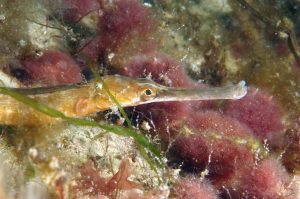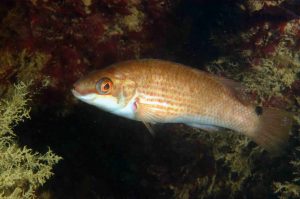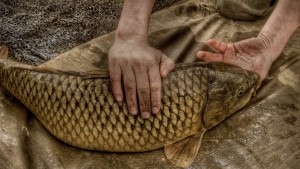
Dr Roger Herbert, Dr Alice Hall, Dave Parham & Prof Rick Stafford
Department of Life & Environmental Sciences, Department of Archaeology, Anthropology and Forensic Science.
Marine scientists in the Faculty of Science & Technology have been awarded a multidisciplinary four year (2017-21) EU Interreg project to design Artificial Reefs optimised for Atlantic waters. The main objective is to deploy and monitor artificial reef blocks that have been designed and fabricated using innovative 3D printing technology and sustainable, low-impact bio-receptive materials . Artificial Reefs (AR) in Europe have not been optimised for the Atlantic where they have potential application to mitigate for the loss of natural reef habitats and to enhance food production, coastal infrastructure and recreational amenity. 3D Printing technology offers considerable scope to increase the complexity of textures and voids and to create structures that could be replicated in large quantity.
The project is led by the University of Cantabria Department of Civil Engineering (Santander, Spain) who specialise in 3D Printing. The other main partners include Bournemouth University (Faculty of Science & Technology), CIIMAR (Interdisciplinary Centre of Marine and Environmental Research, University of Porto, Portugal), IPMA (Portuguese Institute of Sea and Atmosphere), ESITC Caen Institute for Civil Engineering and Construction (Caen, France).
BU expertise includes the survey and monitoring of biological communities on natural and artificial reefs and will be involved in supporting data analysis and mapping activities, small-scale experimental deployments of different materials and will co-ordinate the design, fabrication and deployment of larger reef blocks across the transnational partnership. BU will also develop protocols to monitor the reef blocks and the collection and identification of biota. This will involve regular surveys including the use of SCUBA and drop-down cameras, data analysis and the presentation and dissemination of results through publications, organising workshops and meetings.
















 BU attendance at third annual GCPHR meeting in June
BU attendance at third annual GCPHR meeting in June Interactive Tangible and Intangible Heritage Applications – BU student work featured in new book chapter
Interactive Tangible and Intangible Heritage Applications – BU student work featured in new book chapter Second NIHR MIHERC meeting in Bournemouth this week
Second NIHR MIHERC meeting in Bournemouth this week MSCA Postdoctoral Fellowships 2025 Call
MSCA Postdoctoral Fellowships 2025 Call ERC Advanced Grant 2025 Webinar
ERC Advanced Grant 2025 Webinar Horizon Europe Work Programme 2025 Published
Horizon Europe Work Programme 2025 Published Horizon Europe 2025 Work Programme pre-Published
Horizon Europe 2025 Work Programme pre-Published Update on UKRO services
Update on UKRO services European research project exploring use of ‘virtual twins’ to better manage metabolic associated fatty liver disease
European research project exploring use of ‘virtual twins’ to better manage metabolic associated fatty liver disease